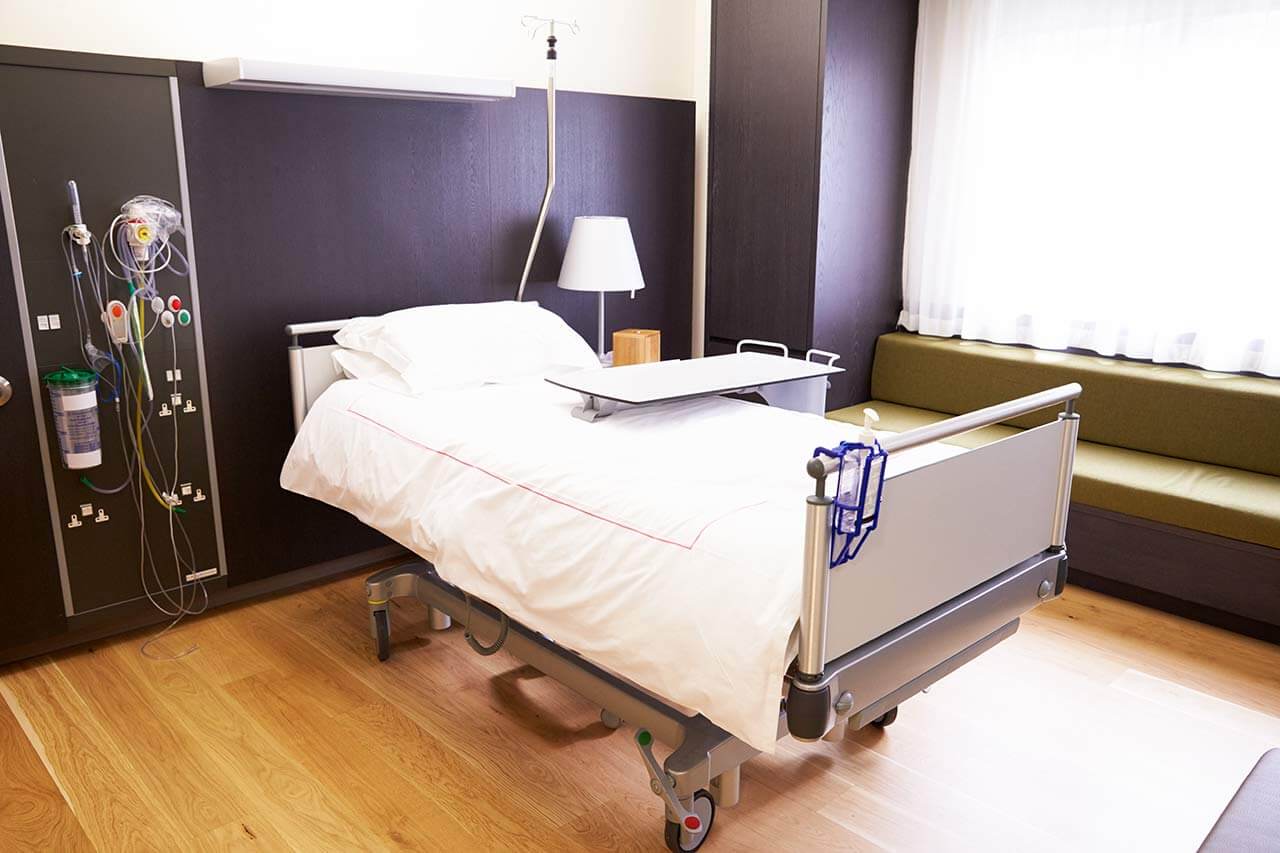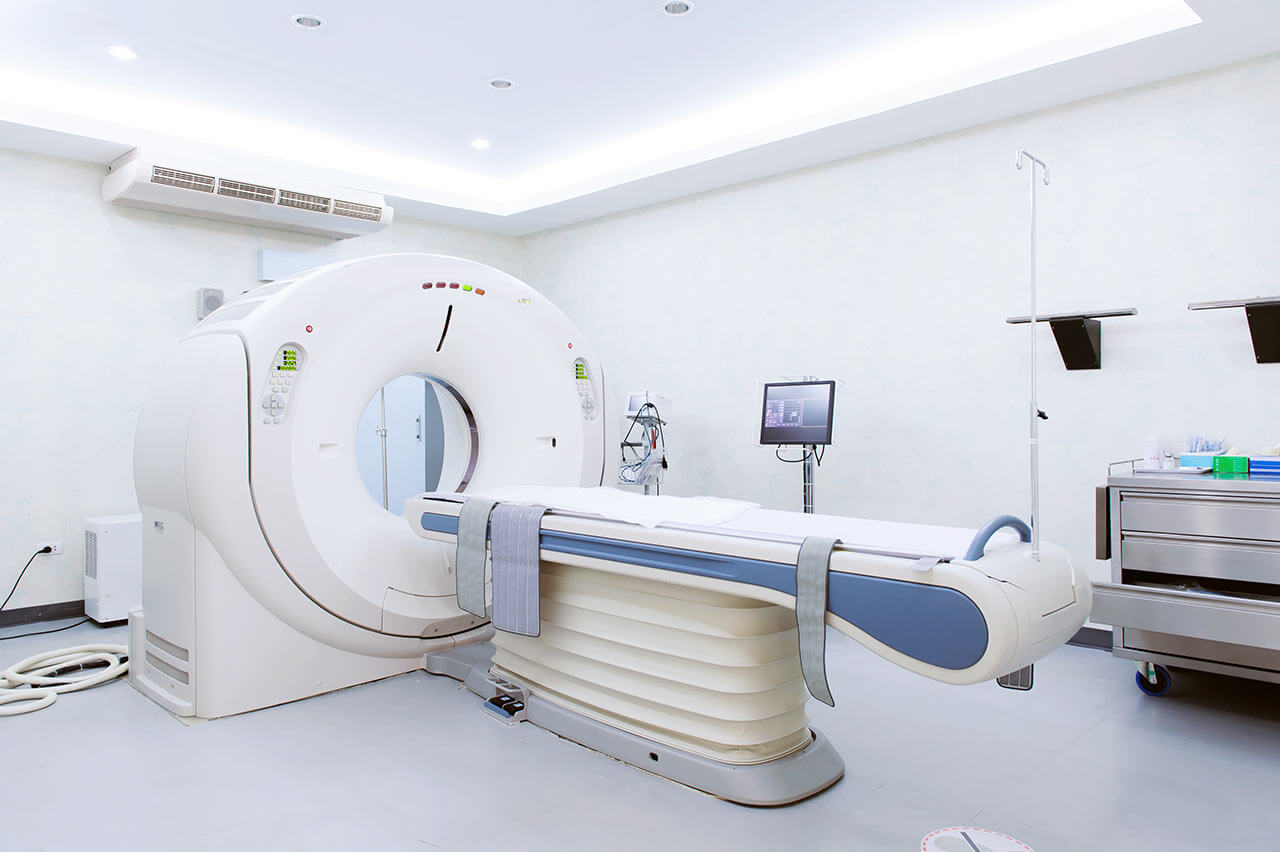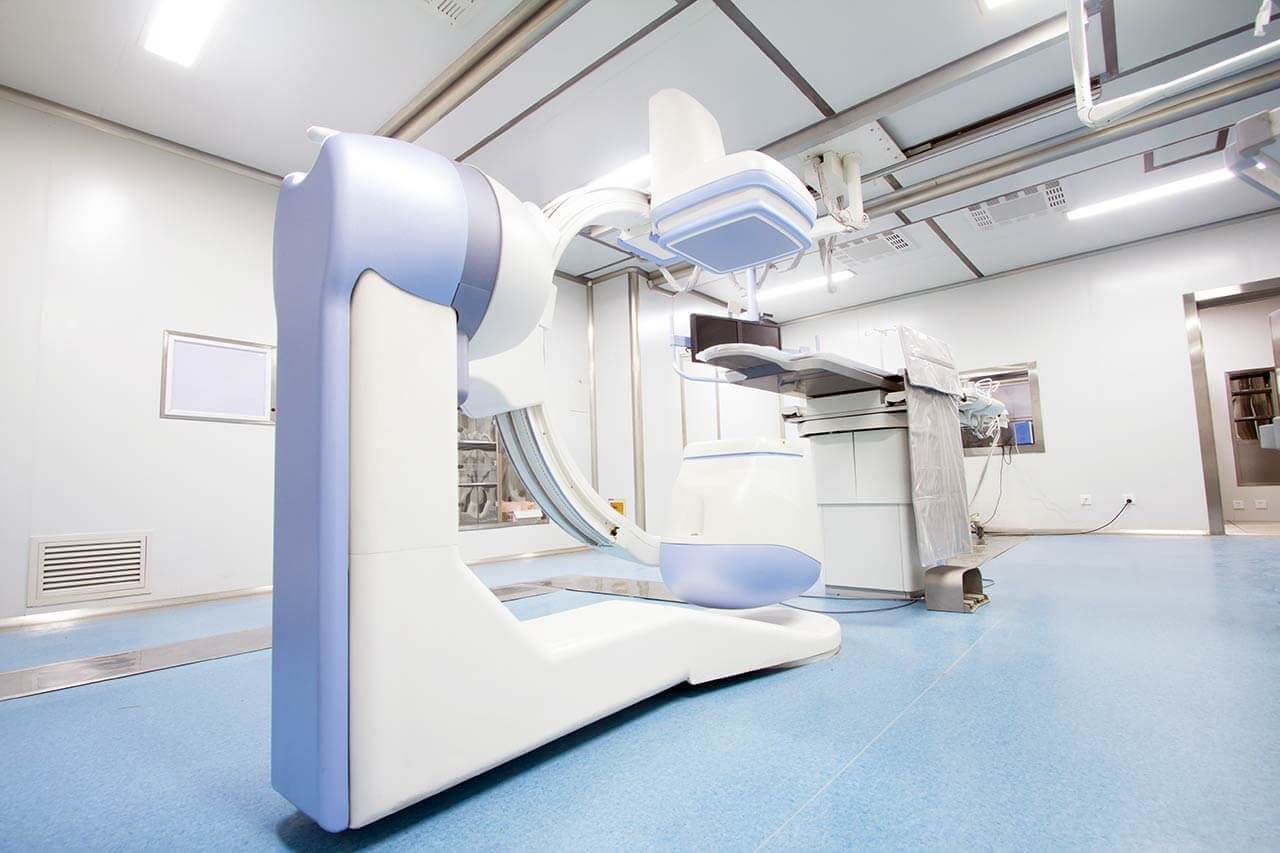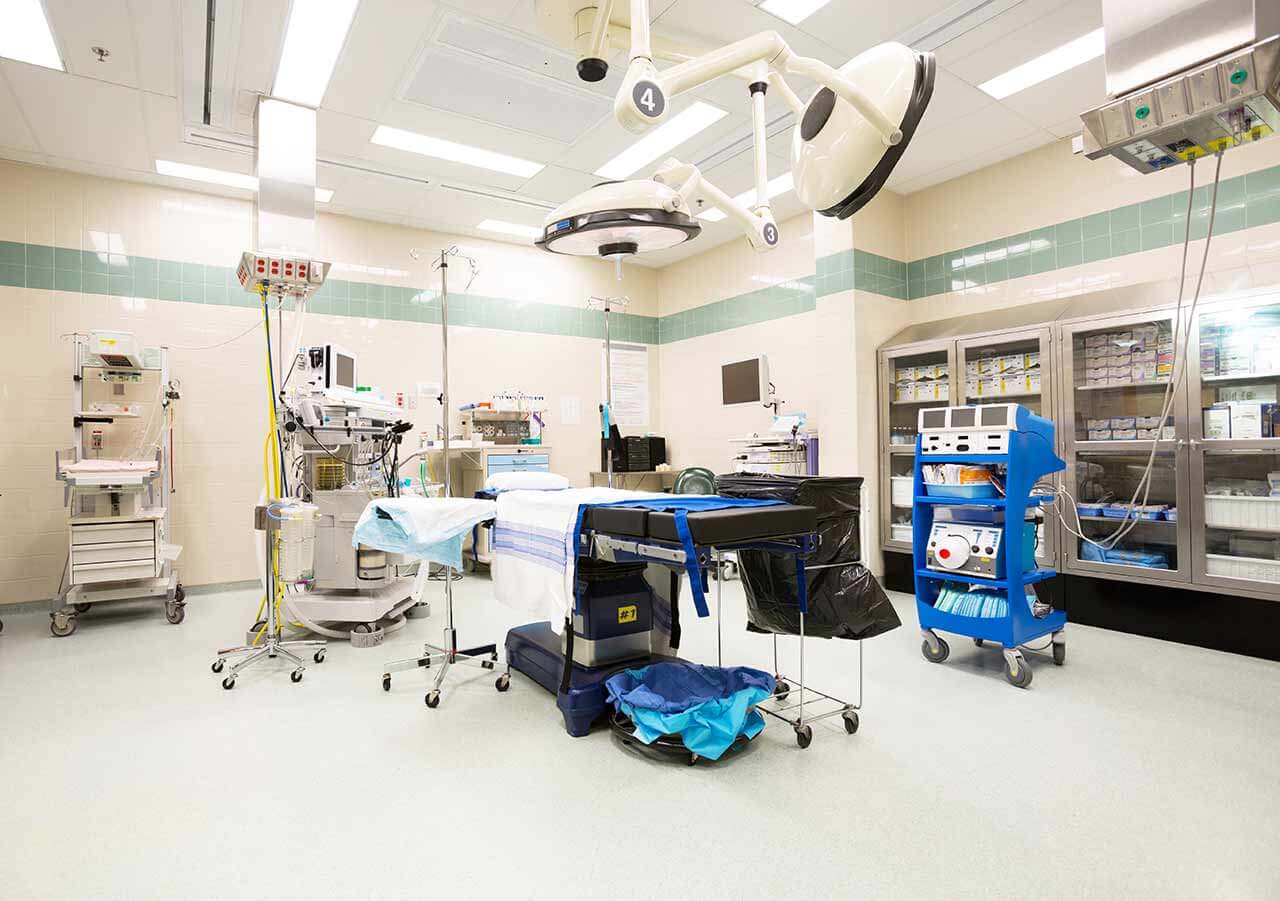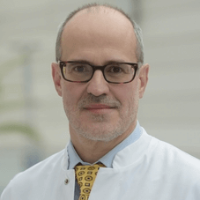
The program includes:
- Initial presentation in the hospital
- Clinical history taking
- Physical examination
- Laboratory tests:
- complete blood count
- biochemical analysis of blood
- TSH, free T3, free T4
- indicators of inflammation
- coagulation tests
- Renal scintigraphy
- Ga-68 DOTATATE PET/CT (if indicated)
- Lutetium-177-DOTATATE treatment
- Full body scintigraphy after 24 hours
- Full body scintigraphy after 48 hours
- Symptomatic treatment
- Cost of essential medicines
- Nursing services
- Stay in the hospital with full board
- Accommodation in 2-bedded room
- Elaboration of further recommendations
How program is carried out
During the first visit, the doctor will carry out a general physical examination and go through the results of previous laboratory and instrumental tests. After that, you will undergo the necessary additional tests such as the assessment of liver and kidney function, scintigraphy of the skeleton and salivary glands, somatostatin receptor imaging with Ga-68 DOTATATE PET/CT. This will allow the doctor to assess how effective the radionuclide therapy with Lutetium-177-DOTATATE will be and how well you will tolerate it. Also, the doctor will calculate your individual dosage of the radionuclide.
Radionuclide therapy with Lutetium-177-DOTATATE is carried out via intravenous administration of a solution with the radioactive isotope Lutetium-177-DOTATATE. The solution is injected through a catheter. This is a short procedure, as the infusion usually takes no more than 20 minutes.
During the procedure, you will need to apply cooling bags to the salivary glands, as Lutetium-177-DOTATATE partially accumulates in the salivary glands, affecting their function and causing dry mouth. You will also receive intravenous saline solutions and amino acid solutions to protect your kidneys.
After the infusion of Lutetium-177-DOTATATE, you will stay in a specially equipped (radiation-shielded) ward for 48 hours. The drug is quickly excreted by the kidneys, and after 48 hours you will no longer be dangerous to others. During these 48 hours, you can read, use a mobile phone, tablet or computer – all these devices will not be a source of radiation in the future.
Follow-up examinations include whole-body scintigraphy or computed tomography in 24 hours and 48 hours after the procedure. Based on the results of the examination, the doctor will determine whether one procedure is enough for you, or whether you will need to visit the hospital again. As a rule, 1-2 procedures are required for achieving a stable positive result. Procedures are carried out with an interval of 8 weeks.
Required documents
- Medical records
- MRI/CT scan (not older than 3 months)
- Biopsy results (if available)
Service
You may also book:
 BookingHealth Price from:
BookingHealth Price from:
About the department
The Department of Nuclear Medicine at the Charite University Hospital Berlin offers the full range of radioisotope diagnostics and treatment using radionuclides. Of particular interest to the department's specialists are the diagnostics and therapy of cancers, diseases of the nervous system, heart, musculoskeletal system, ENT pathologies, surgical diseases, disorders of the urological and gynecological sphere. The department's doctors carry out outpatient diagnostics, inpatient and outpatient treatment in accordance with the guidelines of professional societies. The department is headed by Prof. Dr. med. Winfried Brenner.
The department is equipped with all the innovative equipment available in nuclear medicine. For example, the department performs all types of scintigraphy (including whole body scintigraphy), SPECT, advanced hybrid examinations (SPECT-CT, PET-CT, PET-MR). In addition, the department has several radiochemical modules, including cyclotron for the synthesis of radioactive isotopes for SPECT and PET, as well as for the creation of radioisotope drugs.
The service range of the department includes:
- Outpatient diagnostics
- Brain examinations
- Perfusion
- Dopamine D2 receptor scintigraphy
- Dopamine transporter scintigraphy
- Benzodiazepine receptor scintigraphy
- Cerebrospinal fluid scintigraphy
- Cardiovascular examinations
- Radionuclide ventriculography
- Myocardial perfusion scintigraphy
- Lung examinations
- Perfusion scintigraphy
- Ventilation scintigraphy
- Inhalation scintigraphy
- Kidney examination
- Perfusion/functional scintigraphy
- Glomerular and tubular clearance
- Static scintigraphy
- Abdominal/gastrointestinal examinations
- Hepatobiliary functional scintigraphy
- Selective spleen scintigraphy
- Radioactive blood pool scintigraphy
- Search for bleeding source
- Gastric mucosal examinations
- Esophageal scintigraphy
- Scintigraphy for the determination of gastric emptying degree
- Salivary gland scintigraphy
- Skeletal examinations
- Skeletal scintigraphy
- Bone marrow scintigraphy
- Scintigraphy for the detection of inflammatory processes
- Scintigraphy for the detection of benign and malignant neoplasms
- Endocrine examinations
- Thyroid scintigraphy
- Parathyroid scintigraphy
- Adrenal gland scintigraphy
- Examinations of the hematopoietic system
- Examinations of the lymphatic system
- Sentinel lymph node scintigraphy
- Scintigraphy in lymphedema
- Brain examinations
- PET-CT and PET-MRI
- Diagnostics of inflammations and neoplasms
- Diagnostics of brain function
- Skeletal diagnostics
- Prostate cancer diagnostics
- Diagnostics of brain tumors
- Diagnostics of neuroendocrine tumors
- Outpatient treatment
- Pain therapy in bone metastases
- Radiosynoviorthesis in joint pain
- Cevalin therapy
- Inpatient treatment
- Radioiodine therapy in thyroid diseases
- Peptide receptor radionuclide therapy in neuroendocrine tumors
- Selective intra-arterial radiation therapy in multiple liver metastases
- MIBG therapy in neuroblastomas
- Other medical services
Curriculum vitae
Higher Education and Postgraduate Training
- 1986 - 1993 Medical studies at the Universities in Budapest, Giessen, and Munich.
- 1988 Thesis defense with honors, Institute of Pathology, University Hospital Rechts der Isar Munich. Subject: "Nucleation areas in neuroendocrine gastrointestinal and pancreatic tumors: correlation with histopathological and clinical data".
- 2006 Habilitation in Nuclear Medicine.
Current Positions
- Head Physician, Department of Nuclear Medicine, Charite University Hospital Berlin.
Photo of the docto: (c) Charité – Universitätsmedizin Berlin
About hospital
According to the reputable Focus magazine, the Charite University Hospital Berlin ranks 1st among the best healthcare facilities in Germany!
The hospital is one of the largest and leading university medical complexes in Europe, and also consistently holds leading positions in the international medical arena. The Charite operates on the basis of the Faculty of Medicine of the Free University of Berlin and the Humboldt University of Berlin. Patients are offered modern diagnostics and treatment with the very latest methods, many of which were developed by professors and scientists of the medical complex. More than half of all German Nobel Prize winners in medicine and physiology, such as Emil von Behring, Robert Koch, and Paul Ehrlich, studied and worked at the Charite University Hospital Berlin. The medical complex includes more than 100 specialized departments and institutes, which helps to ensure that patients receive care in all existing medical specialties. The hospital has exceptional experience in treating complex clinical cases.
Each year, the hospital treats more than 137,800 inpatients and more than 787,700 outpatients. The hospital has a bed capacity of 3,293 beds. A huge medical team consisting of 5,670 scientists and doctors and more than 6,000 nurses work for the benefit of the patients. The main task of all specialists of the medical facility is to restore the patient's health or save his life in critical cases. The hospital has a friendly atmosphere where every patient feels care, respect and empathy.
The Charite University Hospital Berlin is generously funded by the German government, which is why it offers patients the latest generation of excellent equipment and comfortable infrastructure. The Charite medical complex is equipped with da Vinci robotic surgery systems, laser technologies, equipment for endovascular catheter-based interventions, neuronavigation devices, intraoperative monitoring systems, equipment for proton therapy available only in the most advanced medical centers in the world, and many other technologies. All these resources, combined with the experience and professional skills of the hospital's doctors, are the key to providing the most effective and safe treatment in accordance with the highest international medical standards.
The hospital is recognized with a huge number of quality certificates, including DIN EN ISO 9001:2015, certificates from the German Cancer Society (DKG), the German Society for General and Visceral Surgery (DGAV), the German Society for Thoracic Surgery (DGT), the German Hernia Society (DHG), and the ERAS Society.
The Charite University Hospital Berlin is a benchmark in the European healthcare system. Patients therefore receive impeccable medical service, quality care, and personalized service that puts the patient and their individual needs first.
Photo: (с) depositphotos
Accommodation in hospital
Patients rooms
The patients of the Charite University Hospital Berlin live in comfortable rooms made of modern design. Each room is equipped with an ensuite bathroom with a toilet and a shower. The standard room furnishing includes an automatically adjustable bed, a bedside table, a wardrobe for storing clothes, a table and chairs for receiving visitors, and a TV. If desired, Wi-Fi access can be provided. The hospital also offers enhanced-comfort rooms.
Meals and Menus
The patient and his accompanying person have a daily choice of three menus. If for any reason, you do not like the food, you will be offered an individual menu. Please inform the medical staff about your dietary preferences before the treatment.
Further details
Standard rooms include:
Religion
Religious services are available upon request.
Accompanying person
During the inpatient program, an accompanying person may stay with you in a patient room or at the hotel of your choice.
Hotel
During the outpatient program, you can live at a hotel of your choice. Managers will help you to choose the most suitable options.
The hospital offers a full range of laboratory tests (general, hormonal, tests for infections, antibodies, tumor markers, etc.), genetic tests, various modifications of ultrasound scans, CT scans, MRI and PET / CT, angiography, myelography, biopsy and other examinations. Treatment with medications, endoscopic and robotic operations, stereotaxic interventions is carried out here, modern types of radiation therapy are also used. The hospital offers patients all the necessary therapeutic techniques.
- Proton therapy
- CyberKnife treatment
- Hyperthermic intraperitoneal chemotherapy (HIPEC)
- PSMA therapy with Lutetium-177
- Joint replacement in adults and children
These are oncological diseases, benign neoplasms of the brain and spinal cord, heart valve defects, diabetes mellitus and its complications, joint diseases and other pathologies.
- Neurosurgery
- Oncology
- Plastic and reconstructive surgery
- Interventional radiology
- Proton therapy (Proton Therapy Center BerlinProtonen)
The medical team includes more than 4,225 highly qualified scientists and doctors.
